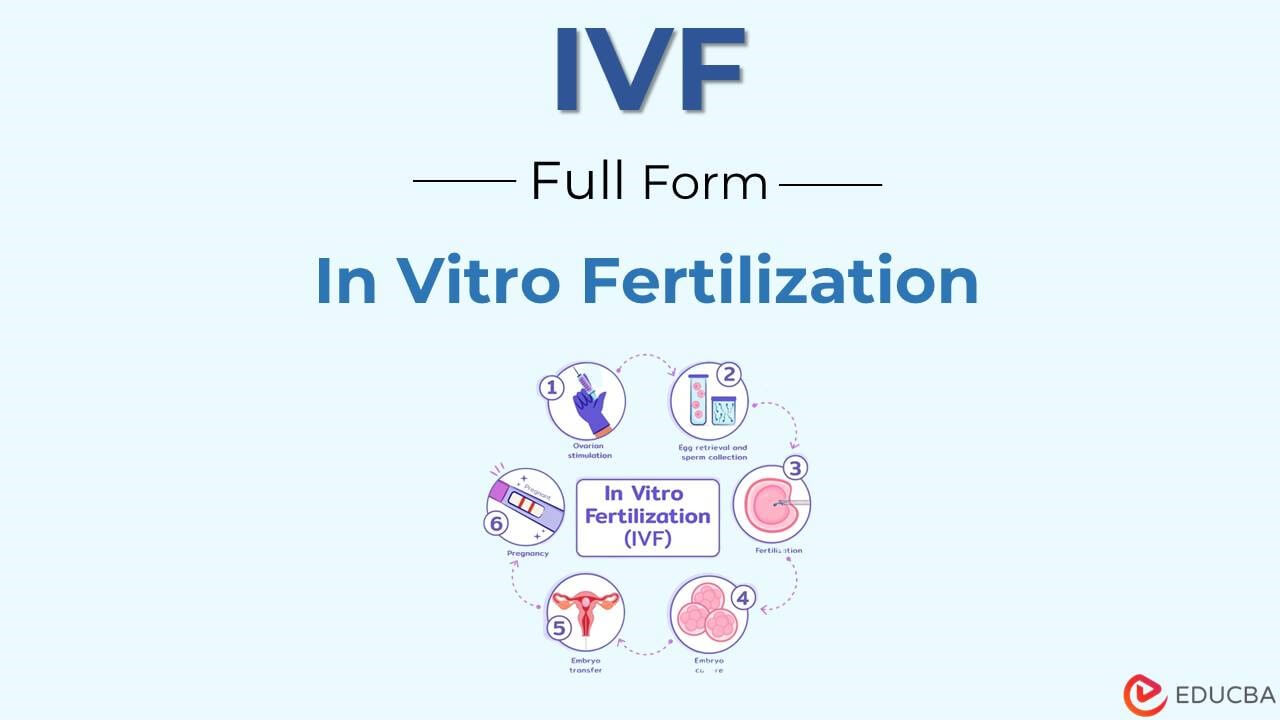IVF (In Vitro Fertilization)
IVF is a multifaceted chain of procedures intended to assist with fertility, avoid genetic disorders, and support child conception. The full form of IVF is In Vitro Fertilization, and it is one of the most successful methods of infertility treatment. The technique uses the couple’s sperm and eggs, and IVF may also use sperm, eggs, or embryos from anonymous donors. Several factors, including your age and the reason for infertility, impact your chances of conceiving a healthy baby with IVF. This article will talk about IVF and various factors about it.

How is IVF Done?
Fertility treatments are done in the female body in the first phase to encourage egg formation. Because some eggs may not develop or fertilize after healing, many eggs are required.
During an IVF, the mature eggs are extracted from the female’s ovaries and then fertilized with the male’s sperm in a laboratory. The fertilized egg (embryo) is then placed in the uterus. An IVF cycle lasts about three weeks in total, and the process may take longer if it is broken up into smaller steps.
When is an IVF Done?
As the primary treatment for infertility concerns in women over 40, IVF is occasionally advised. If either you or your spouse suffers from the following issues, IVF is a great solution. Moreover, there can be several other reasons why IVF is done, and they are as follows:
- Obstruction or damage of the fallopian tubes can make it tough for the egg to fertilize or for the embryo to reach the uterus.
- The eggs are quite small if ovulation is negligible or nonexistent, making it difficult to conceive.
- If you have endometriosis, a tissue identical to the uterine lining that implants develops outside of the uterus, frequently interfering with the functioning of the ovary, uterus, and fallopian tube.
- If there is poor sperm motility, low sperm density, or irregularities in sperm shape or size which make it is hard for sperm to fertilize an egg.
What are the Benefits of IVF?
Having an idea about the full form of IVF can benefit you in several ways. Some of the most common benefits of IVF are as follows:
- While other infertility treatments have failed, IVF succeeds most of the time. In some instances, patients try many reproductive therapies before choosing IVF.
- In rare circumstances, a specialist may consider using donated sperm or embryos. The eggs are fertilized at the facility, and the resulting embryo is used for IVF. It improves your chances of becoming pregnant for the first, second, or third time.
- People busy with their professions and determined to become pregnant at a specific age can benefit from IVF as they select when they wish to become pregnant.
What are the Things to Keep in Mind while Doing an IVF?
Before going in for an IVF treatment, you must keep some of the most important things in mind. They are as follows:
- Do everything you can to control any health issues you may be experiencing, such as obesity, diabetes, or other chronic disorders. Lifestyle changes can also be effective.
- Remember that during your IVF cycle you will have multiple hormone injections, so get ready to feel more emotional. Mild physical effects such as pelvic pressure, cramping, bloating, breast sensitivity, and pain from fertility injections are possible.
- Unfortunately, IVF is not suitable for everybody. Some people become pregnant the first time, while others have to try again, and some couples are unsuccessful even after many efforts. Your age primarily determines the success of IVF.
- If you have one or more eggs inserted during IVF, your chances of producing multiple children increase, which raises the likelihood of early labour and low birth weight.
- If your chances of conceiving through IVF are poor, or if you’ve previously done a round or two without success, you may want to try considering donor sperm or donor eggs.
What are the Risks Involved with IVF?
IVF also comes with certain risks. Some of them are:
- The rate of miscarriage for women who utilize IVF with the help of fresh embryos is similar to that of women who bear children naturally. However, the risk incenses with age.
- The mother’s age is the greatest risk factor for the emergence of birth abnormalities.
- IVF treatment can be financially, mentally, and emotionally challenging. Counselors, family, and friends can support you and your partner as you navigate the challenges and difficulties of infertility therapy.
- IVF marginally increases the baby’s likelihood of being born prematurely or having a lower birth weight.
Conclusion – Full Form of IVF
Today, IVF has grown to be a popular option for people who wish to become parents. With the help of developing technology and science, you can find some of the best clinics and doctors to assist you with IVF treatment. I hope this article has helped you understand the full form of IVF and the various facets related to it.
Recommended Articles
We hope that this EDUCBA information on “Full Form of IVF” was beneficial to you. You can view EDUCBA’s recommended articles for more information –
